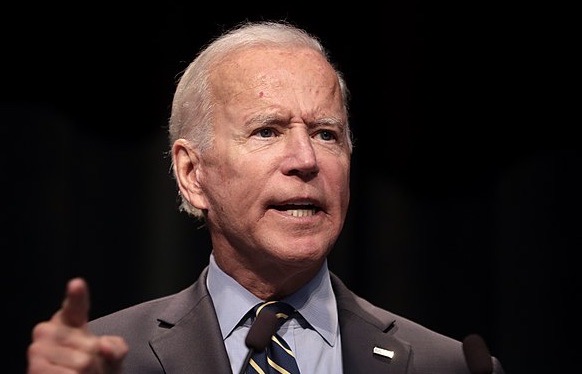Israel is facing a sobering reality in its bilateral relations with the United States, its most important ally. Several of the candidates running for the Democratic Party’s presidential nomination have expressed a willingness to withhold U.S. military aid to Israel should circumstances warrant such a drastic decision.
For the past three years, Israel has received $3.8 billion annually in U.S. assistance. Israel regards it as crucially important element to preserve its qualitative edge over its current and potential enemies in the Middle East.
In 2016, in one of his last acts, President Barack Obama, a Democrat, increased the annual U.S. aid package to Israel from $3 billion to $3.8 billion, despite his cool and contentious relationship with Israeli Prime Minister Benjamin Netanyahu.
Obama’s Republican successor, Donald Trump, has established better relations with Netanyahu and has hewed to the status quo with respect to the level of aid Israel receives.
But the status quo could be imperilled should Trump be defeated in the 2020 presidential election by one of the Democrats who supports the idea of leveraging aid to Israel.

The three Democrats who say they would use American aid as leverage to force changes in Israel’s policy vis-a-vis the Palestinians are Senator Bernie Sanders of Vermont, Senator Elizabeth Warren of Massachusetts and Mayor Pete Buttigieg of South Bend, Indiana. Warren and Sanders are from the progressive wing of the party. Buttigieg is a centrist.
They all oppose the construction of new settlements and the expansion of existing ones in the Israeli-occupied West Bank. They also fear that Israel’s current right-wing government no longer supports a two-state solution, which the United States endorsed until the advent of the Trump presidency. Trump, like Netanyahu, has cooled on Palestinian statehood in the West Bank and the Gaza Strip.
Warren, one of the front runners, staked out a position last month that could put her on a collision course with the Israeli government, particularly if Netanyahu continues on as prime minister. During the last Israeli election campaign, he promised to annex the Jordan Valley, assured Jewish settlers in the West Bank that he would not dismantle a single settlement, and said he could offer the Palestinians in the West Bank no more than autonomy rather than statehood.
“Right now, Netanyahu says he is going to take Israel in a direction of increasing settlements,” Warren said in a reference to Israel’s policy of settlement expansion. “That does not move us toward a two-state solution.”
She added, “It is the official policy of the United States of America to support a two-state solution, and if Israel is moving in the opposite direction, then everything is on the table.”
Sanders shares her view.

Most recently, he said that aid to Israel should be dependent on whether it takes tangible steps to reach a peace agreement with the Palestinians within the parameters of a two state solution. “I would use the leverage of $3.8 billion,” he said. “It is a lot of money, and we cannot give it carte blanche to the Israeli government. We have a right to demand respect for human rights and democracy.”
Sanders said that a segment of the U.S. aid Israel receives should be channelled toward humanitarian relief projects in Gaza. Israel will have to “fundamentally change (its) relationship to the people of Gaza,” he noted in allusion to Israel’s siege of Gaza. “What is going on in Gaza now is absolutely inhumane. It is unacceptable. It is unsustainable.”
A sharp critic of Israel’s current government, he threw in a caveat, saying he would not make decisions that jeopardize Israel’s security. Israelis “absolutely have the right to live in peace, independence, and security,” he declared.
Buttigieg believes that U.S. aid should be used as “leverage to guide Israel in the right direction.” In a reference to Netanyahu’s pledge to annex the Jordan Valley, he said, “If, for example, there is follow-through on these threats of annexation, I’m committed to ensuring that the U.S. (will) not (be) footing the bill for that.”

He claims that U.S. pressure on Israel would be in Israel’s long-term interest. “It is in the American interest, as well as the Palestinian and ultimately the Israel Jewish interest, that Israel not reach the point where there will have to be a choice between either being a Jewish state or a democracy. There is a trajectory toward that going on right now.”
The Conference of Presidents of Major American Jewish Organizations, an umbrella group of more than 50 Jewish organizations, has condemned the views of Sanders, Warren and Buttigieg.
In a press release, the group said, “We are deeply troubled by recent statements that would place conditions, limitations, or restrictions on the U.S. security assistance provided to Israel, so vital for the defence and security of the country, the protection of essential U.S. interests, and stability in the region. This approach would harm American objectives in the Middle East and would undermine the ability of our key ally to defend itself against the threats it faces on all its borders.”
Several of the Democrats vying for the nomination agree with this critique.
Senator Amy Klobuchar of Minnesota, Senator Michael Bennet of Colorado and the former secretary of housing and urban development, Julian Castro, have said that leveraging aid to Israel would be counter-productive.
Joe Biden, the former vice-president, concurs, saying it would be a “gigantic mistake” and “absolutely outrageous” to apply conditions to sending aid to Israel. “Israelis wake up every morning facing existential threats,” he said. “That’s why we always have to be adamant that Israel should be able to defend itself.”

Nonetheless, Biden remains a critic of Israeli settlement activity in the West Bank. He has warned that “Israel’s steady and systematic process of expanding settlements, legalizing outposts (and) seizing land is eroding … the prospect of a two-state solution.”
The plan to leverage aid to Israel is an old one. As Warren has suggested, both Democratic and Republican presidents have leaned on Israel in a bid to alter its policies.

Ronald Reagan delayed the delivery of fighter jets to the Israeli Air Force following Israel’s destruction of Iraq’s nuclear reactor in 1981. In the 1990s, George H.W. Bush and Bill Clinton withheld billion-dollar loan guarantees to Israel in protest over its expenditures on building or expanding West Bank settlements.
So there is a history here that may yet repeat itself should Warren, Sanders or Buttigieg win the Democratic presidential nomination and go on to defeat Trump in next year’s election.
